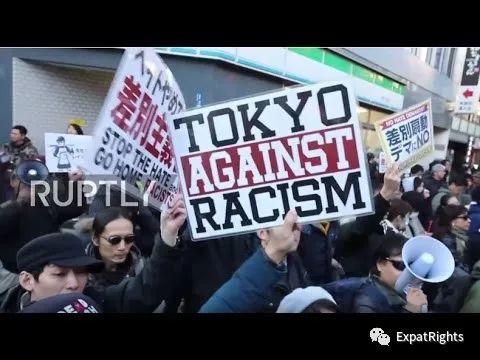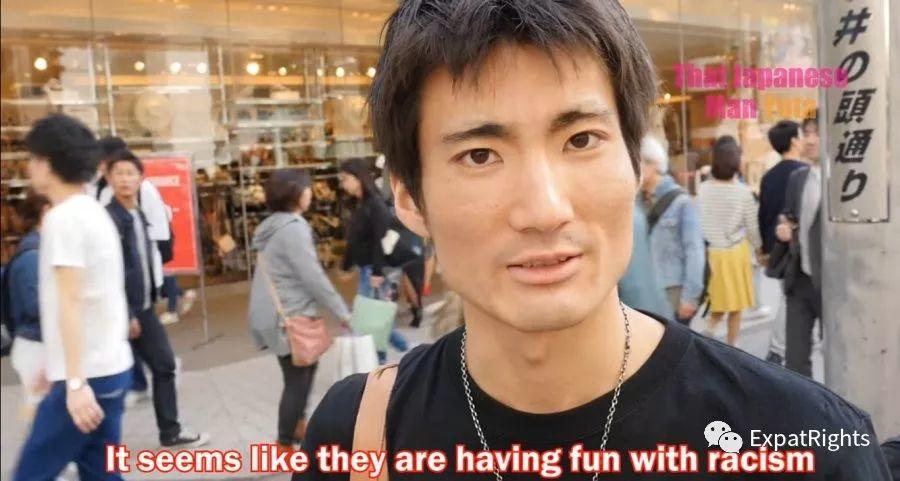
TOKYO
Much ink has been spilled about the supposed homogeneity of Japan and the dangerous idea of racial purity that goes along with it. Some expats have made entire careers writing — or ranting — about the problems of discrimination in Japan.
So how racist is Japan, really? Here’s my take — admittedly only one perspective — on where things stand.

So, let’s start with where I’m coming from. I grew up in a white, middle-class neighborhood. There were a handful of minorities at my schools, mostly Latino, but I lived my entire life as part of the majority ethnic group. Moving to Japan 10 years ago was the first time in my life that I experienced what it’s like to be in the minority.
For the first time in my life, I was visibly “other.” For the first time, I wondered what assumptions people were making about me based on the color of my skin and the shape of my face. For the first time in my life, racial differences stopped being something I thought about abstractly and started being something I confronted daily.

Many Japanese make three assumptions about me before even speaking to me. One, I am an American (true). Two, I am an English teacher (nope). And three, I don’t speak Japanese or know anything about Japanese culture (the jury might still be out on this one). None of these assumptions are particularly terrible, but are nonetheless racial stereotypes.

This is the majority of racism I’ve seen in Japan, the so-called “innocent racism,” unchallenged assumptions springing from society or the social mores of the time. It isn’t motivated by animus, the notion just hasn’t been challenged or is unexamined.
That’s not to say that there aren’t more insidious varieties of racism that are driven by hate knocking around. If you’ve ever seen one of the right-wing, Japan-for-Japanese vans driving around Shibuya, you couldn’t deny that, and by some reports, this kind of hate speech is on the rise. However, it’s my impression that this is very much a fringe element, much as you can still find the KKK in the States, but no one would call it a mainstream philosophy.

While my experiences with racial profiling in Japan have been relatively benign, things are much more problematic for other groups. Some of the comments made in casual conversation or even in the media about Africans (or anyone black, really), other Asians (in particular SE Asians and Asians from former Japanese colonies), or minorities within Japan such as the Ainu of Hokkaido, the Ryukyu of Okinawa, ethnic Koreans and the Burakumin betray far more negative stereotypes.

While it may bother me that people assume I’m a teacher (I’m not knocking the profession, I just get tired of correcting them), that seems preferable to them assuming that I’m a criminal or only married to a Japanese for the visa. The very comfort with which some people make vast generalization and throw around phrases like “all Chinese” or “we Japanese” is distressing.

There are positive signs that attitudes about race are changing in Japan, though.
There is growing recognition that Japan is in fact multi-ethnic. The government reversed its long-held policy of forced assimilation and recognized the Ainu as an indigenous people, and in 2007, it joined the United Nations Declaration on the Rights of Indigenous Peoples.
Japan doesn’t have laws banning hate speech or protecting non-Japanese against discrimination, but there have nevertheless been some positive outcomes in recent court cases. For example, a court ruled last month that an anti-Korean group that protested outside of a school for ethnic Koreans in Kyoto would have to pay damages, saying the activity “constituted racial discrimination” under the UN convention. In a similar case some years ago in Hamamatsu, a court ordered a jewelry shop that refused to serve a Brazilian resident to pay damages, citing the International Convention on the Elimination of All Forms of Racial Discrimination as the legal standard in the absence of a domestic discrimination law.

I think Japan could be doing a lot more to protect minorities and foster a more friendly environment for foreigners.
The first and most important step would be to codify the international commitments they’ve already made into Japanese law. There should be a law banning hate speech. There should be a law banning discrimination, particularly in employment and housing, on the basis of race or nationality. It also wouldn’t hurt to have more government engagement with relevant groups and NGOs, particularly in crafting the laws that will affect them.
What will ultimately change attitudes in Japan is more discussion, though. Particularly in the media and in education, I would love to see more diversity and more recognition of the presence and contributions of foreigners and minorities in Japan. History classes should cover the darker aspects of Japan’s history so young people will have a more nuanced understanding of lingering conflicts with their neighbors.
Do Chinese people like black people?
There are bigots here, just like in every society, but on the whole, people are friendly and open, just lacking in exposure to diversity.
WHAT DO YOU THINK?
LEAVE A COMMENT BELOW!
SHOUTOUT TO THE CHAMPION OF #EXPATRIGHTS IN JAPAN: DEBITO.ORG
? SUPPORT #EXPATRIGHTS – SHARE THIS POST! ?
始发于微信公众号:ExpatRights

